-
 Bitcoin
Bitcoin $120400
1.77% -
 Ethereum
Ethereum $3615
7.90% -
 XRP
XRP $3.580
17.84% -
 Tether USDt
Tether USDt $1.001
0.06% -
 BNB
BNB $729.4
1.25% -
 Solana
Solana $179.9
5.04% -
 USDC
USDC $0.0000
0.01% -
 Dogecoin
Dogecoin $0.2311
8.22% -
 TRON
TRON $0.3226
4.04% -
 Cardano
Cardano $0.8490
12.85% -
 Hyperliquid
Hyperliquid $46.45
0.72% -
 Stellar
Stellar $0.4913
8.54% -
 Sui
Sui $4.027
2.00% -
 Chainlink
Chainlink $18.51
11.67% -
 Hedera
Hedera $0.2818
21.51% -
 Avalanche
Avalanche $24.03
7.40% -
 Bitcoin Cash
Bitcoin Cash $508.5
2.90% -
 Shiba Inu
Shiba Inu $0.00001496
3.24% -
 UNUS SED LEO
UNUS SED LEO $8.961
1.83% -
 Toncoin
Toncoin $3.264
3.13% -
 Litecoin
Litecoin $104.6
8.15% -
 Polkadot
Polkadot $4.389
6.11% -
 Uniswap
Uniswap $9.924
10.63% -
 Monero
Monero $337.9
0.49% -
 Pepe
Pepe $0.00001376
2.79% -
 Bitget Token
Bitget Token $4.830
2.46% -
 Ethena USDe
Ethena USDe $1.001
0.05% -
 Dai
Dai $1.000
0.02% -
 Aave
Aave $325.2
1.66% -
 Bittensor
Bittensor $423.7
-0.85%
How is the security of a Binance wallet guaranteed?
Binance secures wallets using HSMs, multi-signature authorization, and encryption, but user responsibility (strong passwords, 2FA) is crucial. An insurance fund mitigates, but doesn't guarantee, losses from breaches; regular audits and transparency build trust.
Mar 25, 2025 at 12:56 am
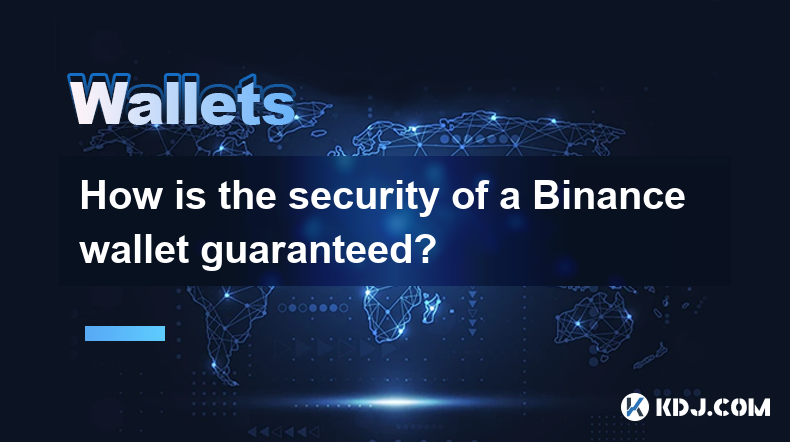
Key Points:
- Binance's wallet security relies on a multi-layered approach encompassing hardware security modules (HSMs), multi-signature authorization, and robust encryption.
- User security is primarily the responsibility of the individual, emphasizing the importance of strong passwords, two-factor authentication (2FA), and avoiding phishing scams.
- Binance's insurance fund aims to mitigate losses from potential security breaches, though it doesn't guarantee complete protection against all risks.
- Regular security audits and updates are crucial for maintaining the platform's security posture. Transparency regarding these measures builds user trust.
- Understanding the different wallet types offered by Binance (exchange wallet, Trust Wallet) and their respective security implications is essential for users.
How is the Security of a Binance Wallet Guaranteed?
Binance, one of the world's largest cryptocurrency exchanges, employs a multifaceted security strategy to protect user funds. However, it's crucial to understand that complete security is virtually impossible in the realm of digital assets. Binance's approach focuses on minimizing risks through various layers of protection.
One primary method is the use of hardware security modules (HSMs). These physical devices store cryptographic keys offline, significantly reducing the vulnerability to hacking attempts targeting online systems. The keys are crucial for accessing and transferring cryptocurrency, and their offline storage represents a significant barrier to unauthorized access.
Beyond HSMs, Binance utilizes multi-signature authorization. This means that multiple individuals must approve transactions before they are executed, preventing any single point of failure. This layered authorization significantly increases the difficulty for malicious actors to compromise the system and steal funds. It adds an extra layer of verification before any significant actions are taken.
Robust encryption techniques are also employed throughout Binance's systems. Data is encrypted both in transit and at rest, protecting it from unauthorized access even if a breach were to occur. This encryption safeguards sensitive user information and prevents its unauthorized disclosure.
While Binance employs strong security measures, the responsibility for securing individual accounts ultimately rests with the users. Strong, unique passwords are essential, and enabling two-factor authentication (2FA) adds an extra layer of protection against unauthorized logins. 2FA typically requires a code from a separate device, making it much harder for hackers to gain access even if they obtain your password.
Furthermore, users must be vigilant against phishing scams. Binance will never request login credentials or private keys via email or other unsolicited communication. Always verify the legitimacy of any communication claiming to be from Binance through official channels before taking any action. Be cautious of suspicious links or requests for personal information.
Binance also maintains an insurance fund designed to compensate users for losses resulting from security breaches. However, it's important to remember that this fund doesn't guarantee full compensation in all scenarios. The scope of coverage and the process for claims can vary depending on the nature of the security incident. It acts as an additional safety net but should not be solely relied upon.
To maintain a high level of security, Binance conducts regular security audits and updates its systems to address vulnerabilities and incorporate the latest security protocols. Transparency in reporting these audits and updates is crucial for maintaining user trust and confidence in the platform's security measures. Open communication helps users understand the ongoing efforts to protect their assets.
It's crucial to understand the differences between the various wallet options offered by Binance. The exchange wallet, used for holding funds directly on the Binance exchange, offers a level of convenience but is inherently more vulnerable to platform-wide security breaches, albeit protected by the measures mentioned above. Binance also supports Trust Wallet, a separate mobile wallet that offers greater control over private keys but requires more user responsibility in terms of security management. Choosing the right wallet depends on your individual risk tolerance and technical expertise.
Frequently Asked Questions:
Q: Is my cryptocurrency completely safe in a Binance wallet?
A: No, while Binance employs robust security measures, no system is entirely immune to breaches. User vigilance and adherence to best security practices are crucial.
Q: What should I do if I suspect unauthorized access to my Binance account?
A: Immediately change your password, enable 2FA if you haven't already, and contact Binance support. Report the incident to relevant authorities if necessary.
Q: What is the role of Binance's insurance fund?
A: It's designed to compensate users for losses in the event of certain security breaches, but it doesn't guarantee complete protection against all risks.
Q: What are the key differences between Binance's exchange wallet and Trust Wallet?
A: The exchange wallet offers convenience but is more susceptible to platform-wide breaches. Trust Wallet provides greater user control over private keys but demands higher user responsibility for security.
Q: How often does Binance conduct security audits?
A: The frequency of audits is not publicly disclosed in detail, but Binance emphasizes continuous security improvements and regular updates. Transparency around this is evolving.
Q: What is the best way to protect my Binance wallet from phishing attacks?
A: Always verify the authenticity of any communication claiming to be from Binance through official channels. Never click on suspicious links or provide your login details or private keys unsolicited.
Disclaimer:info@kdj.com
The information provided is not trading advice. kdj.com does not assume any responsibility for any investments made based on the information provided in this article. Cryptocurrencies are highly volatile and it is highly recommended that you invest with caution after thorough research!
If you believe that the content used on this website infringes your copyright, please contact us immediately (info@kdj.com) and we will delete it promptly.
- Bitcoin, Crypto Wallets, and Security: Staying Safe in the Wild West of Digital Finance
- 2025-07-18 16:30:12
- Bitget Launchpool Heats Up with Caldera (ERA) Token Rewards!
- 2025-07-18 16:50:12
- XLM Bullish Chart: Analyst Sees Stellar Opportunity
- 2025-07-18 17:10:13
- Memeclip Presale: The 100x Potential CT Degens Are Buzzing About
- 2025-07-18 16:30:12
- Twitter, Investors, and PENGU Trade: Decoding the Signals
- 2025-07-18 17:10:13
- Bitcoin Whale's $9.6B Galaxy Digital Move: Profit-Taking or Strategic Play?
- 2025-07-18 14:30:12
Related knowledge
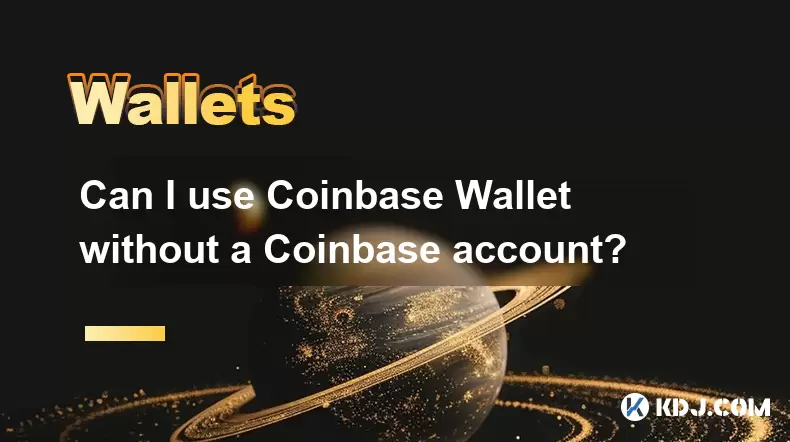
Can I use Coinbase Wallet without a Coinbase account?
Jul 18,2025 at 04:35am
What is Coinbase Wallet?Coinbase Wallet is a self-custodial wallet that allows users to store, send, and receive various cryptocurrencies directly on ...
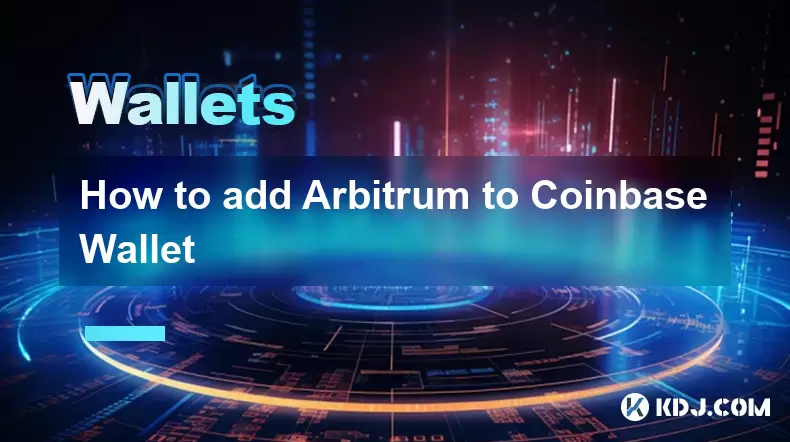
How to add Arbitrum to Coinbase Wallet
Jul 18,2025 at 03:00pm
Understanding Arbitrum and Its Integration with Coinbase WalletArbitrum is a layer-2 scaling solution developed by Offchain Labs to enhance the speed ...
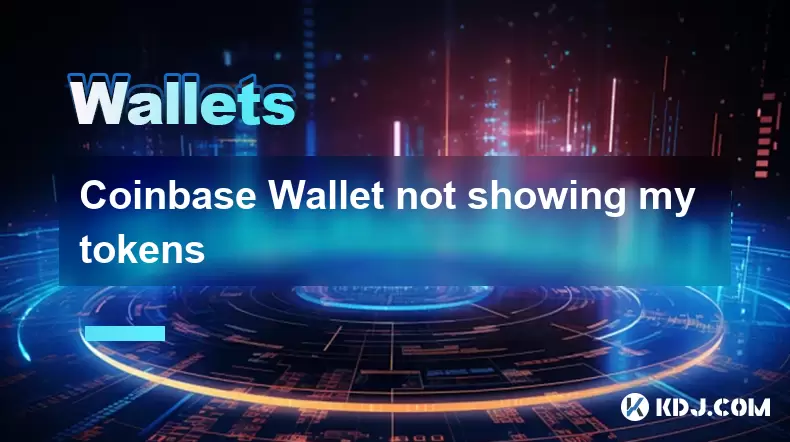
Coinbase Wallet not showing my tokens
Jul 18,2025 at 09:49am
Understanding Coinbase Wallet Token Display IssuesIf you're experiencing issues where Coinbase Wallet not showing my tokens, it can be frustrating, es...
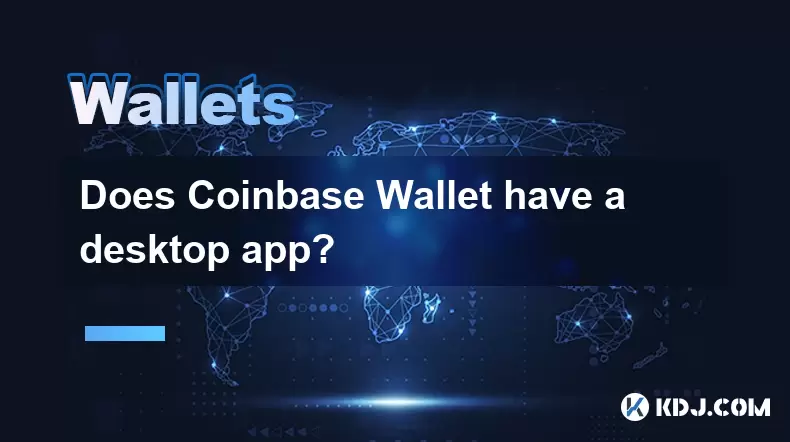
Does Coinbase Wallet have a desktop app?
Jul 18,2025 at 12:08am
Understanding Coinbase Wallet and Its Core FeaturesCoinbase Wallet is a non-custodial cryptocurrency wallet developed by Coinbase, one of the leading ...
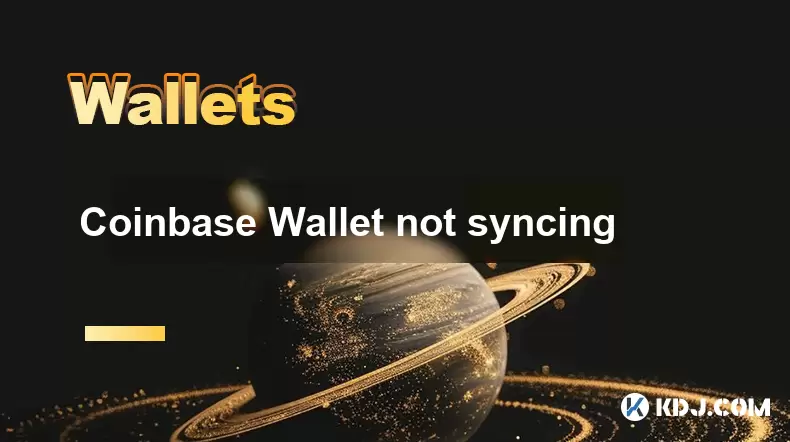
Coinbase Wallet not syncing
Jul 18,2025 at 07:49am
Understanding Coinbase Wallet Syncing IssuesWhen users encounter problems with Coinbase Wallet not syncing, it typically means that the wallet is unab...
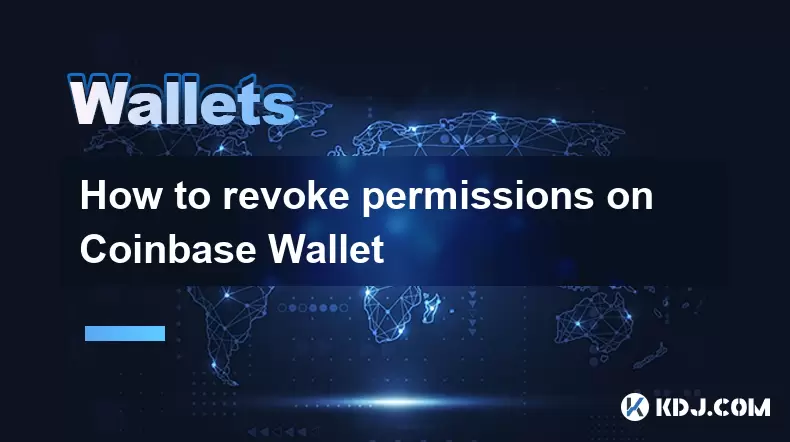
How to revoke permissions on Coinbase Wallet
Jul 18,2025 at 02:00am
What Does It Mean to Revoke Permissions on Coinbase Wallet?In the context of Coinbase Wallet, revoking permissions refers to removing access that dece...

Can I use Coinbase Wallet without a Coinbase account?
Jul 18,2025 at 04:35am
What is Coinbase Wallet?Coinbase Wallet is a self-custodial wallet that allows users to store, send, and receive various cryptocurrencies directly on ...

How to add Arbitrum to Coinbase Wallet
Jul 18,2025 at 03:00pm
Understanding Arbitrum and Its Integration with Coinbase WalletArbitrum is a layer-2 scaling solution developed by Offchain Labs to enhance the speed ...

Coinbase Wallet not showing my tokens
Jul 18,2025 at 09:49am
Understanding Coinbase Wallet Token Display IssuesIf you're experiencing issues where Coinbase Wallet not showing my tokens, it can be frustrating, es...

Does Coinbase Wallet have a desktop app?
Jul 18,2025 at 12:08am
Understanding Coinbase Wallet and Its Core FeaturesCoinbase Wallet is a non-custodial cryptocurrency wallet developed by Coinbase, one of the leading ...

Coinbase Wallet not syncing
Jul 18,2025 at 07:49am
Understanding Coinbase Wallet Syncing IssuesWhen users encounter problems with Coinbase Wallet not syncing, it typically means that the wallet is unab...

How to revoke permissions on Coinbase Wallet
Jul 18,2025 at 02:00am
What Does It Mean to Revoke Permissions on Coinbase Wallet?In the context of Coinbase Wallet, revoking permissions refers to removing access that dece...
See all articles

























































































